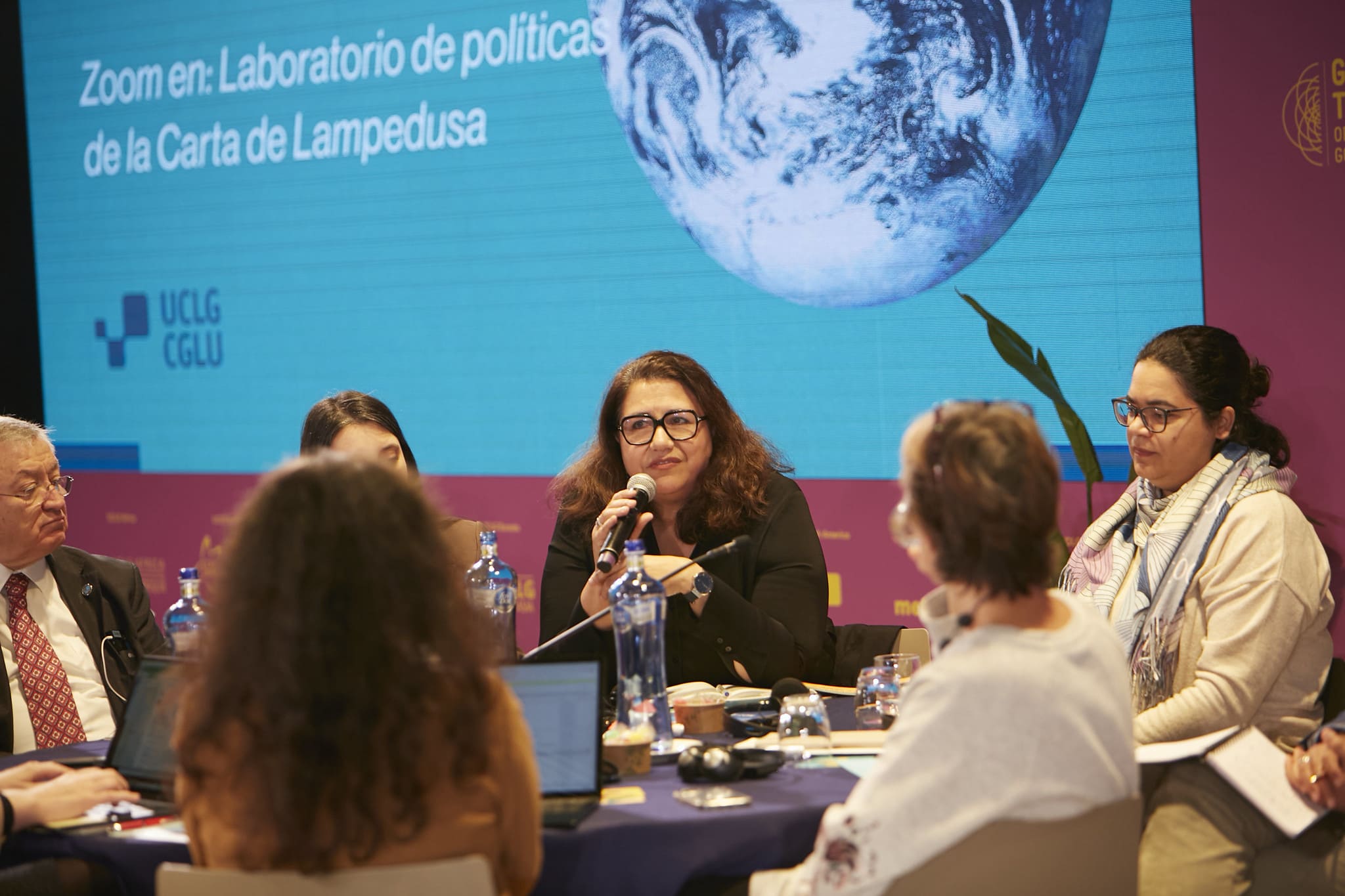The first Human Mobility Policy Lab of the UCLG Retreat, attended by a wide range of actors with profound life experiences or involvement in migration-related issues, served as a platform to explore the complexities of migration and our collective responsibility towards it. At the heart of the discussion was the Lampedusa Charter, an innovative framework that initiated a global conversation led by governments worldwide on the issues faced by Lampedusa and similar regions.
The Charter, developed over two years of consultations and extensive peerlearning sessions involving numerous local governments, incorporates principles designed to defend human dignity, focusing on treating migrants, both living and deceased. Each principle outlined in the Charter establishes five working priorities, laying the groundwork for concrete action and implementation.
Carlo de Marco, Secretary General of the Border Towns and Islands Network, emphasised the vital importance of ensuring dignity for all individuals, regardless of their origins or migration routes, and highlighted the difficult task faced by Lampedusa in providing dignified treatment for arrivals, often traumatised by their journey. The sobering reality of dealing with fatalities underscores the urgency of the matter, prompting a reevaluation of intervention strategies and governmental authority limitations.
In view of Wajdi Aydi, of the Association Afrique Intelligence, there is a need for a holistic approach to migration based on dignity, freedom, and dialogue principles. The journey towards dignified treatment of migrants requires collaboration among diverse actors, including local governments, civil society, and international organisations.
The Policy Lab deepened into the challenges that Local and Regional Governments face, opportunities for dignified migration, and strategies for collaboration with civil society.
The stakeholder perspectives highlighted the need for improved coordination, knowledge-sharing, and inclusive policies prioritising human rights. From addressing mourning processes to improving access to services and fostering inclusive citizenship, participants emphasised the importance of collective efforts to navigate the complexities of migration.
In the words of Emilia Saiz, the discussion on migration transcends mere acts of solidarity; it speaks to the fundamental fabric of our society. The work carried out in collaboration with Lampedusa serves as a ray of hope, a testament to our shared humanity, and a call to action for global leaders to prioritise dignity in all migration-related endeavours.
The journey towards dignified migration is filled with challenges; we can pave the way for a more inclusive and compassionate world for all individuals, regardless of origin or circumstance.


 This publication was produced with the financial support of the European Union. Its contents are the sole responsibility of UCLG and do not necessarily reflect the views of the European Union.
This publication was produced with the financial support of the European Union. Its contents are the sole responsibility of UCLG and do not necessarily reflect the views of the European Union.